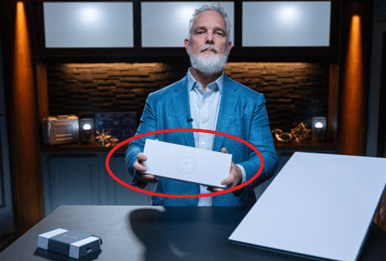- Shortlysts
- Posts
- Former U.S. Vice President Dick Cheney Dies at Age Eighty-Four
Former U.S. Vice President Dick Cheney Dies at Age Eighty-Four
Former U.S. Vice President Dick Cheney dies at age eighty-four from natural causes.

What Happened?
Former U.S. Vice President Dick Cheney died at age eighty-four from complications from pneumonia and heart disease, according to a statement provided by his family. Mr. Cheney had a long history of heart trouble, experiencing five heart attacks and eight cardiac events in the first decade of the 2000s. As the nation’s forty-sixth vice president, Mr. Cheney served under President George W. Bush, and was in office during the terrorist attacks on New York and Washington, D.C. on September 11, 2001.
Before becoming vice president, Mr. Cheney previously served as White House Chief of Staff, Secretary of Defense, and was a U.S. Congressman from Wyoming for several terms. He was also CEO of Halliburton, a Fortune 500 oil services company.
Why it Matters
Mr. Cheney was a key architect of the global war on terrorism, or GWOT, which was the name for the U.S. government’s military response to 9/11. ‘He has been pretty damn good at accumulating power, extraordinarily effective and adept at exercising power,’ James A. Baker III, a former secretary of state and treasury secretary, said of Mr. Cheney in 2007. Mr. Cheney also supported expansive presidential powers until January 6th, 2021, when he began to say that presidential powers should have more limits.
Tech legend Jeff Brown predicts this “space technology” will be Elon Musk’s next trillion-dollar business…
And it will make a lot of people rich.
Click here to see the details because this could be the biggest internet innovation since the first web browser Netscape kicked off the internet boom in the late 1990s.
While President George W. Bush often referred to himself as the ‘decider in chief,’ Dick Cheney often handled the strategy for the Bush presidency. Mr. Cheney was an early advocate for more aggressive tactics against terrorist organizations, especially interrogation techniques that critics argued violated the Geneva Convention, to which the U.S. remains a signatory. Mr. Cheney defended harsher treatment of terrorist suspects, arguing the intelligence gained from those interrogations prevented further attacks against the U.S.
Mr. Cheney also played a key role in the U.S. decision to invade Iraq, arguing repeatedly and falsely that Saddam Hussein was directly connected to Osama Bin Laden and Al Qaeda. In fact, Saddam Hussein was a more secular ruler who viewed groups like Al Qaeda with alarm, often imprisoning their operatives when they carried out activities in Iraq. While there was no question Saddam Hussein was a brutal dictator who massacred his own people, he had nothing to do with the terrorist attacks of 9/11 or Al Qaeda.
While often criticized by Democrats, Mr. Cheney broke ranks with Republicans and condemned President Trump’s efforts to overturn the 2020 presidential election. Despite his statements in his later years, the legacy of Vice President Cheney will likely remain dominated by the global war on terrorism.
How it Affects You
Vice President Cheney came into politics during the Cold War and quickly pivoted from Russia to transnational terrorism as the top security threat facing the United States after 9/11. While the U.S. ultimately succeeded in finding and eliminating Al Qaeda, it came at a tremendous cost in terms of both blood and treasure. Whether that success or the enormous cost of it will be Cheney’s final legacy will be determined by history.
